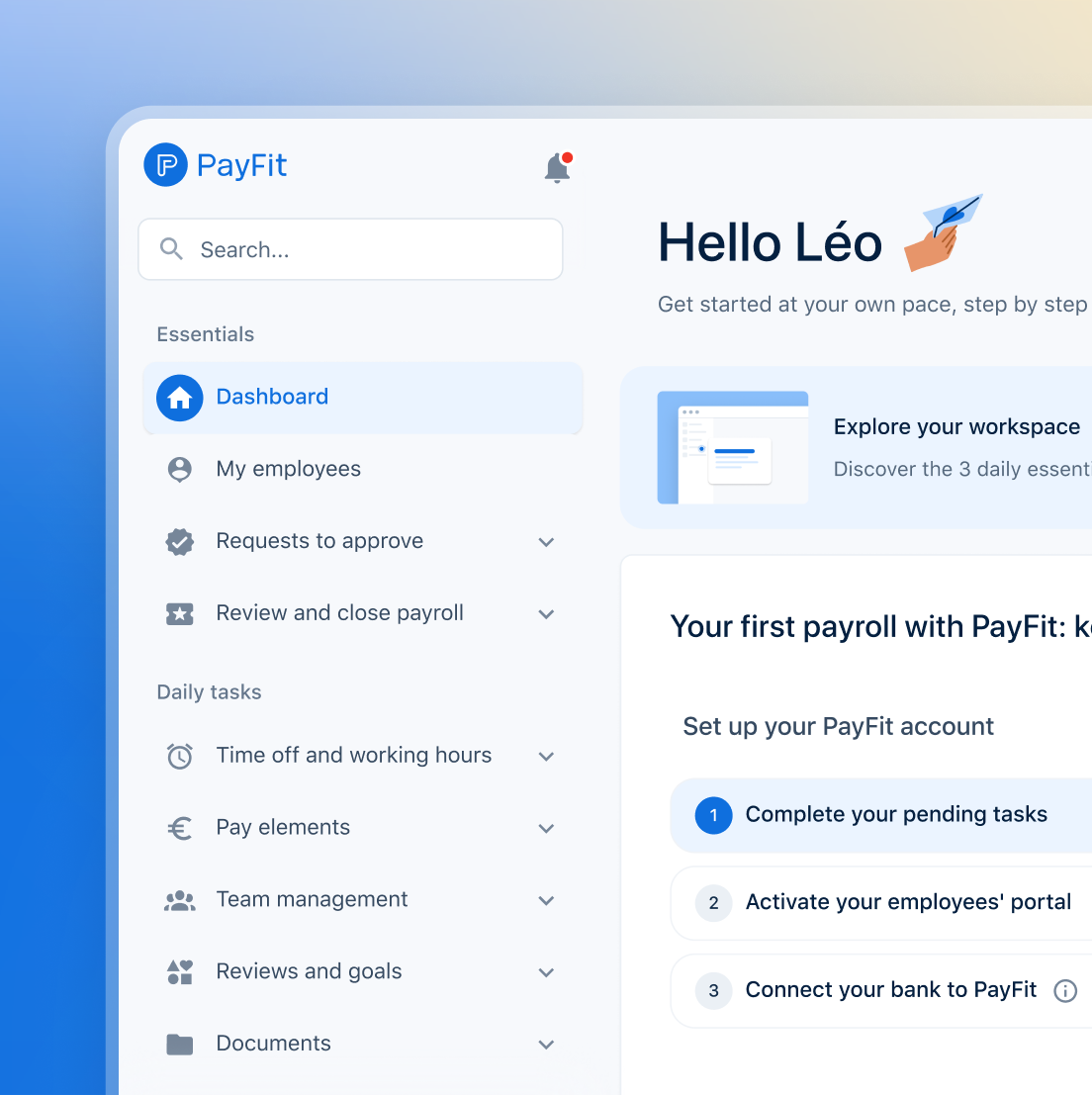✨ Health insurance, now in PayFit - learn more
💷 All the rates & thresholds you need to know for 25/26...right here
✨ The Payroll Journey: Start, Scale & Succeed Globally - learn more
✨ Health insurance, now in PayFit - learn more
💷 All the rates & thresholds you need to know for 25/26...right here
✨ The Payroll Journey: Start, Scale & Succeed Globally - learn more

For HR leaders of growing UK businesses, understanding the landscape of payroll deductions is essential. It’s not just about regulatory and tax compliance, it’s about offering attractive benefits that can help you attract and retain top talent. This guide provides a clear explanation of pre-tax deductions in the UK, how they work, and the benefits they offer for both employers and employees.
So, what exactly are pre-tax deductions? A pre-tax deduction is an amount taken from an employee’s gross pay before Income Tax and National Insurance Contributions (NICs) are calculated. This reduces the employee’s taxable income, meaning they pay less tax and National Insurance. For employers, this can also mean lower employer National Insurance Contributions. These deductions are typically for specific benefits offered by the employer, and participation is often voluntary for the employee. Understanding the question ‘What is a pre-tax deduction?’ and its implications is the first step to leveraging its benefits.
It’s important to distinguish between pre-tax and post-tax deductions. As the name suggests, post-tax deductions are taken from an employee’s net pay, after tax and National Insurance have been calculated. These deductions do not reduce an employee’s taxable income. Common examples of post-tax deductions include student loan repayments and court-ordered payments. The key difference lies in the impact on an employee’s taxable pay, and, consequently, on their take-home amount.

In the UK, payroll deductions can be categorised in a few ways.
Statutory deductions: These are required by law. They include PAYE (Pay As You Earn) Income Tax and National Insurance Contributions. These are not pre-tax deductions but are the primary deductions from an employee’s pay.
Non-Statutory deductions: These are deductions that an employee has agreed to. Pre-tax benefit deductions fall into this category, as do some post-tax deductions such as charitable donations or trade union subscriptions.
The most common form of pre-tax deductions in the UK are made through a ‘salary sacrifice’ arrangement. In a salary sacrifice scheme, an employee gives up a portion of their gross salary in exchange for a non-cash benefit. This effectively reduces their taxable income.
Examples of salary sacrifice deductions include:
Pension contributions: This is one of the most common pre-tax deductions. Both employee and employer contributions to a workplace pension scheme are typically made before tax. This provides a significant boost to retirement savings. For more information on pensions, you can read our guide on pensions explained in the UK.
Cycle-to-work schemes: This government-backed initiative allows employees to get a bike and cycling equipment tax-free. The cost is deducted from their gross salary over a set period.
Childcare vouchers: While the scheme closed to new entrants in 2018, employees who were already members can continue to receive them. The value of the vouchers is deducted from their pre-tax salary.
Company cars: If an employee has a company car for personal use, this can be offered as a salary sacrifice benefit, although there are specific tax implications to consider.
Pre-tax deductions offer a win-win situation for both employees and employers.
Increased take-home pay: By reducing their taxable income, employees pay less Income Tax and National Insurance, which can increase their net pay.
Affordable benefits: It makes valuable benefits such as pension plans and health insurance more affordable.
Enhanced savings: Pre-tax pension contributions mean more money goes into their retirement pot.
Reduced costs: Employers also save money through lower employer National Insurance Contributions.
Improved employee benefits package: Offering a range of pre-tax benefits can make your company more attractive to potential hires, and help retain existing staff.
A happier, healthier team: Benefits such as health plans and cycle-to-work schemes can contribute to a healthier and more productive workforce.

So, how can you set up pre-tax deductions for your employees?
Select the benefits: Decide which pre-tax benefits you want to offer your team.
Amend employment contracts: You will need to amend your employees’ contracts to reflect the salary sacrifice arrangement. It is essential that this is done correctly to ensure compliance.
Communicate with your employees: Clearly explain the benefits and how the deductions will work.
Managing payroll deductions, especially with a growing team, can be complex. This is where payroll software comes in. A solution like PayFit can automate calculations for both pre-tax and post-tax deductions, ensuring accuracy and full compliance. This helps to avoid errors and saves your HR and finance teams valuable time and money. Automated calculations mean you don’t have to worry about correctly figuring out how to calculate National Insurance or dealing with the complexities of tax and NI on your own.
It is vital to ensure that any pre-tax deduction scheme you implement is fully compliant with HM Revenue and Customs (HMRC) rules. Salary sacrifice arrangements must not reduce an employee’s pay below the National Minimum Wage. You should also be aware of the tax implications of the benefits you offer. While many benefits are tax-free, some, such as company cars, are considered a ‘benefit-in-kind’ and have their own tax rules.
By understanding what pre-tax deductions are and how to implement them effectively, you can provide valuable benefits to your employees and make significant savings for your business. It is a smart way to enhance your compensation package and support your team’s financial and personal well-being.

Learn how directors’ National Insurance works in the UK in 2026, including rates, thresholds, calculation methods, and key differences from employees.

Learn how to submit a Full Payment Submission (FPS) to HMRC in 2026, including deadlines, payroll data requirements, RTI rules, and how to avoid penalties.

Learn what an employer reference number (ERN) is in the UK, what it looks like, where to find it, and when you need one for payroll and PAYE admin.

Understand the difference between cumulative & non-cumulative tax codes. Ensure your UK payroll is accurate & HMRC compliant for 2026 & 2026/27.

Understand the PAYE reference number (ERN), learn where to find it, how to register as an employer with HMRC, and why it matters for payroll compliance.

Learn about the key National Insurance changes in 2026 affecting UK businesses, including employer rates, thresholds, and the Employment Allowance.

See what's new in PayFit
New features to save you time and give you back control. Watch now to see what's possible